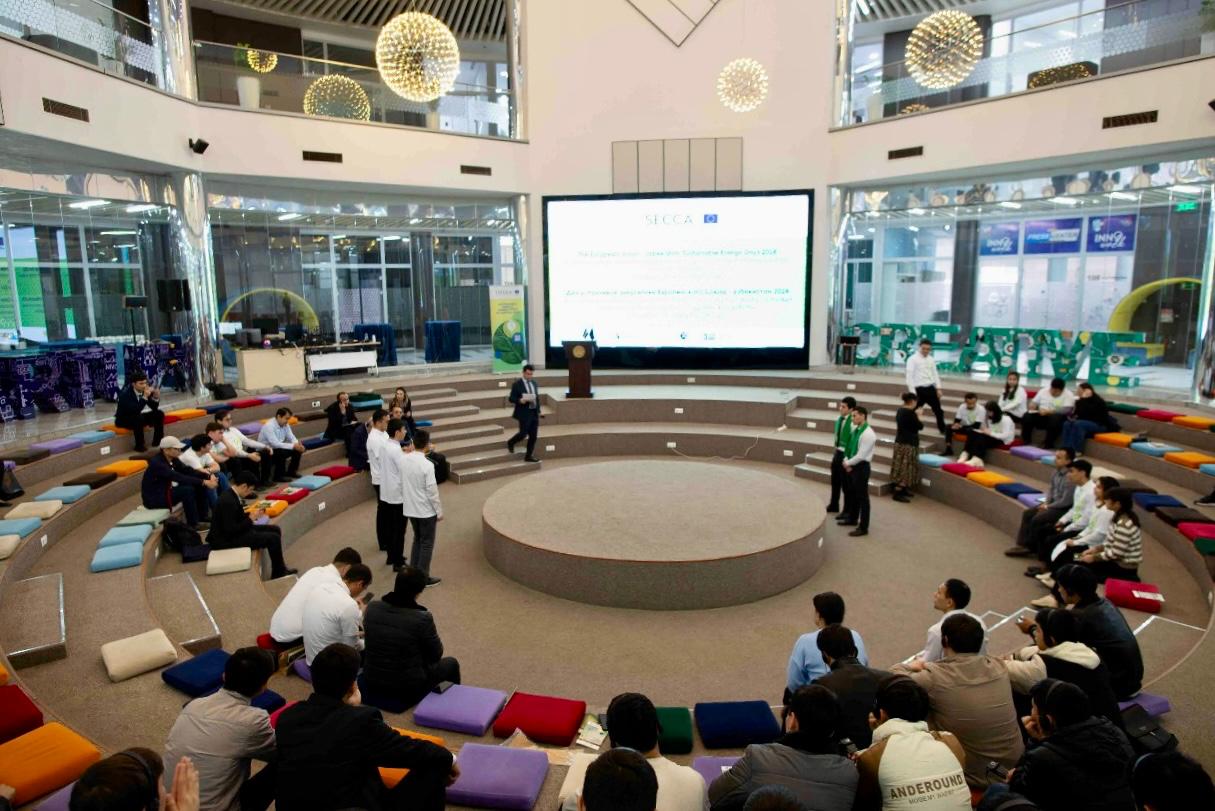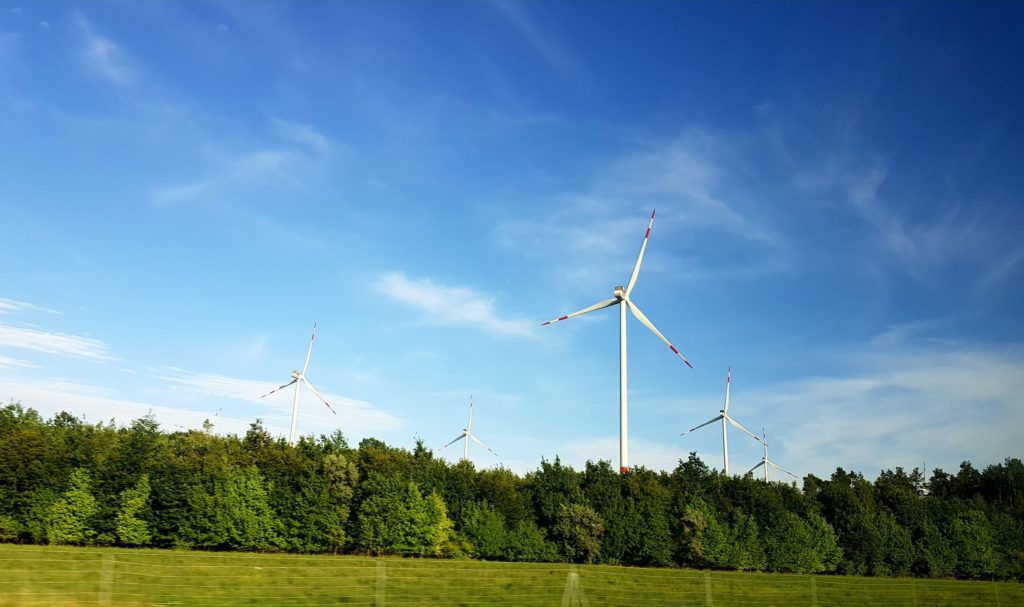Uzbekistan – From 18 to 21 November 2024, the Second European Union – Uzbekistan Sustainable Energy Days took place in the cities of Samarkand and Tashkent. Organised annually by the European Union (EU), this campaign engages and fosters dialogue on energy transition among policymakers, experts, academia, businesses, and general public, including youth and children. It featured a variety of activities, such as an award ceremony to recognise the Most Energy Efficient School, a university student debate, and a Horizon Europe workshop on research cooperation.
This year, the EU-funded project “Sustainable Energy Connectivity in Central Asia (SECCA) partnered with the Ministry of Preschool and School Education of the Republic of Uzbekistan and the Ministry of Higher Education, Science, and Innovation of the Republic of Uzbekistan and the Agency for Strategic Reforms under the President of the Republic of Uzbekistan to organise the campaign events.
Mr Wim RIEPMA, Head of Cooperation of the Delegation of the European Union to the Republic of Uzbekistan, stated:“Achieving the goals of the Paris Agreement requires prioritising the green energy transition. Events like the Sustainable Energy Days are important, as they bring us together to explore innovative solutions that not only protect our environment but also drive economic growth and energy security. By working together, we can make meaningful progress towards climate resilience and a sustainable future that benefits everyone. Uzbekistan is actively developing renewable energy, in particular solar and wind energy. The European Union welcomes Uzbekistan’s plans to increase the share of renewable energy up to 40 % in its energy mix and the country’s energy efficiency by 1,5 times by 2030. The EU remains dedicated to supporting the country on this path.”
In Samarkand, the EU recognised Secondary School №9 as the Most Energy Efficient School. The Award Ceremony raised the children’s awareness about the connection between energy and climate, built their skills for the thoughtful use of energy resources, encouraged creative thinking about sustainable energy solutions to protect climate and environment on the Planet.
In Tashkent, the students and faculty staff of 5 universities took part in the lectures and debates on sustainable energy. The students of Tashkent University of Architecture and Civil Engineering, Tashkent State Technical University Named after Islam Karimov, Turin Polytechnic University in Tashkent, Tashkent Institute of Irrigation and Agricultural Mechanization Engineers, and Tashkent Institute of Chemical Technology debated on a green energy vision for Tashkent. The EU awarded these students with a free access to the Energy training to be delivered online by the Florence School of Regulation (Italy) – a European centre of excellence for innovative trainings on energy and climate.
In addition, the Ministry of Higher Education, Science, and Innovation and the SECCA project held a workshop “Unlocking EU–Central Asia Research Cooperation under Horizon Europe” for the country’s education and research institutions. It showcased the funding opportunities, projects and initiatives funded by the EU’s Horizon Europe programme in Central Asia, and demonstrated how it can assist in strengthening international research collaboration.
Background:
The European Union is an economic and political union of 27 European countries. It is founded on the values of respect for human dignity, freedom, democracy, equality, the rule of law and respect for human rights, including the rights of persons belonging to minorities. It acts globally to promote sustainable development of societies, environment and economies, so that everyone can benefit.
The European Union – Uzbekistan Sustainable Energy Days is part of the broader European Union – Central Asia Sustainable Energy Days campaign. Its purpose is to enhance the awareness of national stakeholders and the public in the region of Central Asia on the significance, benefits and accessibility of sustainable energy and the interlinkage between energy and climate change. It also represents a global edition of EU Sustainable Energy Week (EUSEW), the largest annual event dedicated to renewables and efficient energy use in Europe, initiated in 2007 by the European Commission. The campaign is organised yearly in the countries of Central Asia by the EU-funded project “Sustainable Energy Connectivity in Central Asia (SECCA)”.
The EU-funded project “Sustainable Energy Connectivity in Central Asia (SECCA)” (from March 2022 to March 2026) aims to promote a sustainable energy mix in the Central Asia region in line with EU best practices. To fulfil its mission, SECCA strives to provide for strengthened and more inclusive policy, regulatory and institutional framework for the transition to a sustainable energy system, within a regional context, and focuses on contributing to the fulfilment of international human rights commitments in CA countries, including equal access to energy, and supporting gender inclusive policies and legislation for energy efficiency (EE) and renewable energy (RE). The project activities include capacity development for EE and RE deployment, awareness raising on EE and RE, and improving investment climate for EE and RE projects.
For additional information, please contact Mrs Yelena Serebrennikova, Senior Strategic Communication Expert, SECCA, email: media@secca.eu, WhatsApp: +77019814020, Mrs Nurgul Smagulova-Dulic, Digital Communication and Media Relations Expert, SECCA, email: nurgul.smagulova@secca.eu, WhatsApp: +77012066760, or the EU Delegation to Uzbekistan, email: delegation-uzbekistan@eeas.europa.eu.





